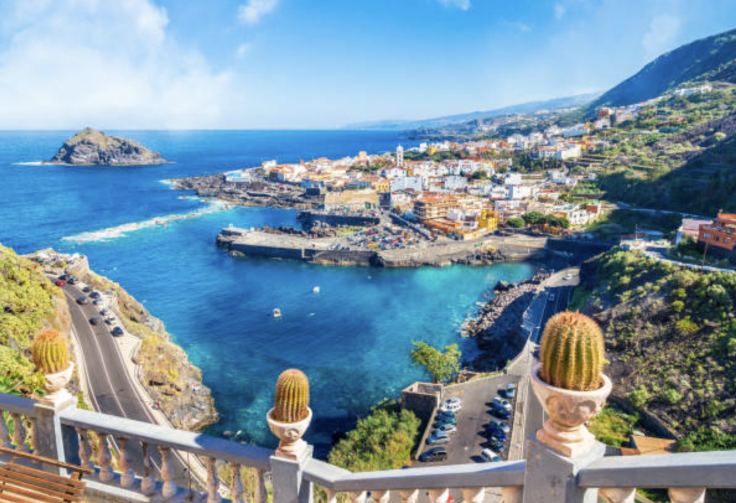Brits Can Get Charged Up To £2,563 If They Do This One Thing In Canary Islands
The swiping has endangered Fuerteventura's ecosystems

Since the Cumbre Vieja volcano erupted on the Island of Las Palmas in 2021 and the large forest fires broke out on the Island of Tenerife last year, the Canary Islands has turned its attention to protecting its ecosystems.
In a bid to do so, the Canary Islands have launched a crackdown on tourists who have been disrupting nature and stealing keepsakes from its shorelines.
As a result, Britons are warned that they could be fined if they take sand, rocks or stones from the Canary Islands back to the UK.
This news comes after more UK nationals have been taking beach tokens as a reminder of their holiday instead of a magnet and other memorabilia.
Depending on the number of shells, pebbles, rocks and sand the traveller has taken, the island's authorities have implemented hefty financial penalties that will see tourists pay huge fines ranging from £128 to a staggering £2,563.
According to data published by the airport administrator Aena, British nationals accounted for a vast 5.7 million arrivals to the Canary Islands last year, more than a third of the 14.1 million international travellers who visited Spain's Atlantic enclave in 2023.
If each British tourist took a pocketful of sand home last year, the Canary Islands would have nothing left on its beaches this year.
Lanzarote and Fuerteventura have been listed as the worst affected areas after several natural spaces were threatened by people stealing their so-called souvenirs.
The swiping in Fuerteventura, particularly on 'Popcorn' Beach located near Corralejo on the north of the island, Minister of the Environment for Cabildo Samuel Martín said that tourists have caused irreparable damage to the ecosystem.
Fuerteventura's "Popcorn Beach", named after the cinema snack, has been hit the hardest by tourists taking its famous algae fossils - which look exactly like popcorn.
Despite signs warning travellers that taking lithic material is a criminal offence, Popcorn Beach has lost around 1,000 kilograms of its famous sand to visitors each month.
Councillor Lola García has since declared that Fuerteventura's ecosystems are endangered.
Roughly a ton of natural materials from protected beaches in Lanzarote are lost yearly.
Travellers charged with a minor offence must pay between £128 and £512 in fines.
For tourists caught trying to smuggle many stones, rocks or sand home, their holiday reminders will most likely cost them the maximum fine of £2,563.
After seizing the rocks, sand, pebbles or shells, officials faced difficulty identifying where the lithic materials originated.
Other European nations, including Italy, France, and Greece, warned their constituents that they could face huge fines if they also swipe materials from beaches.
Last year, a French man was fined around £2,575 after he was caught stealing 41 kilograms of pebbles and stones from Lampianu beach in Sassari, Italy.
In 2019, a French couple were also caught stealing materials from Italy's beaches.
The couple were found with 14 plastic bottles full of sand from one of Sardinia's famous white sand beaches, weighing 40 kilograms.
© Copyright IBTimes 2025. All rights reserved.






















